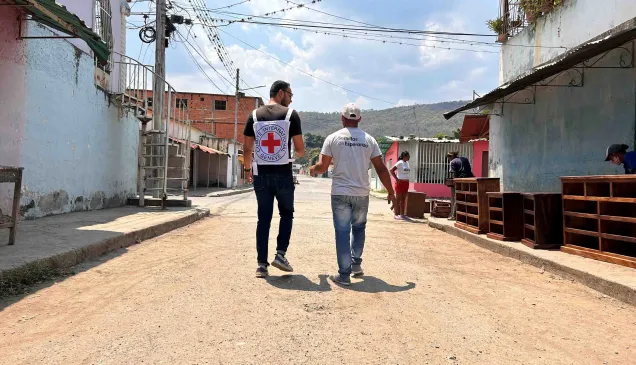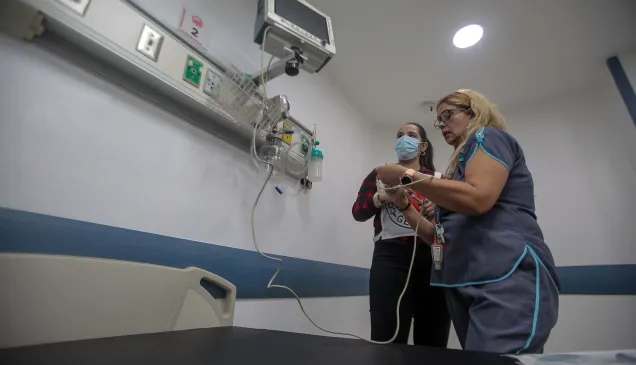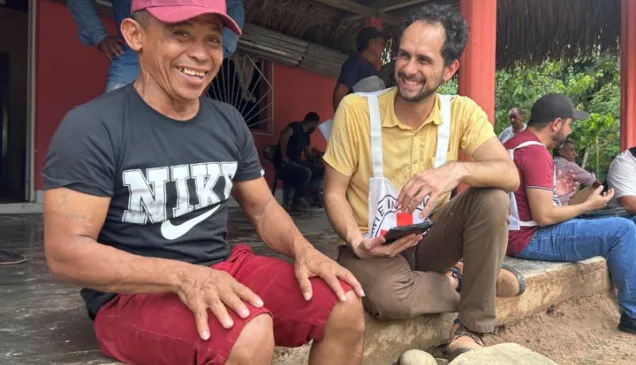Venezuela: Restored access to water brings hope and relief to vulnerable communities in Bolívar State
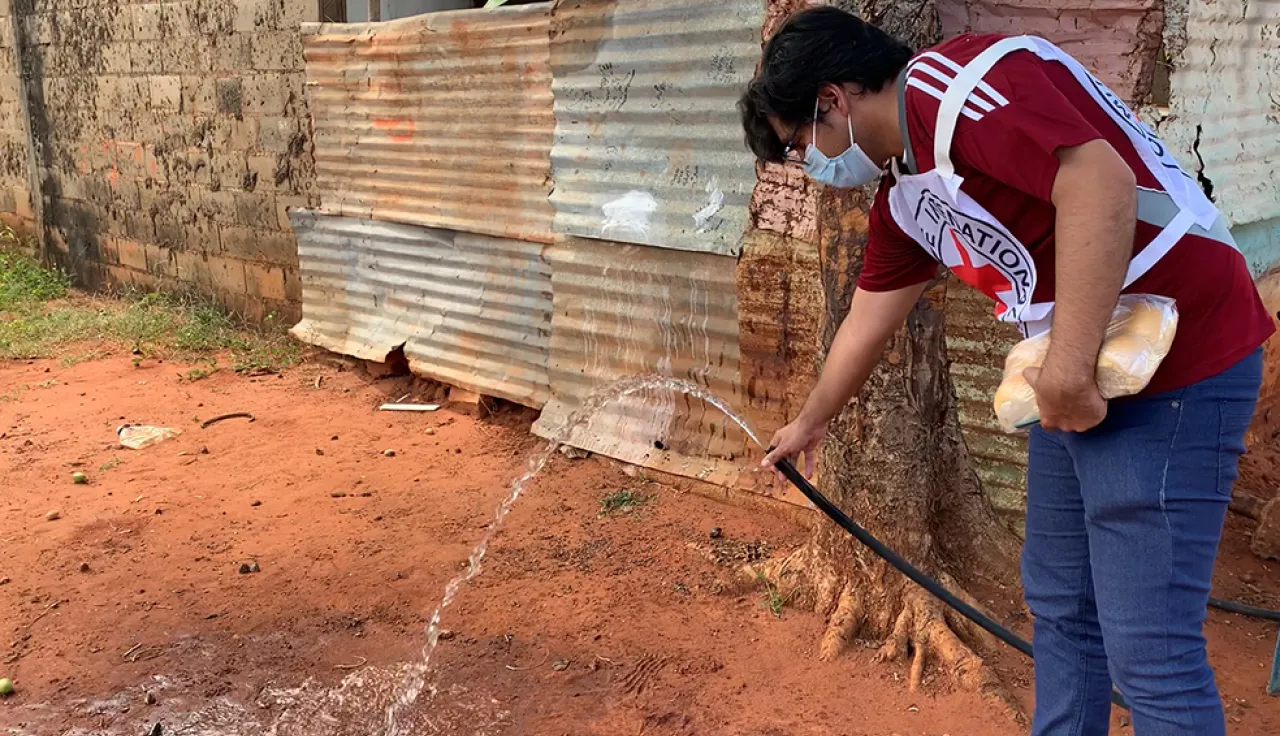
For the nearly 2,400 people living in Pueblo de Dios and Sueño de Bolívar, Bolívar State, walking at least 40 minutes every day to fetch water was the norm. Now, thanks to the joint efforts of the International Committee of the Red Cross and the local communities, they can access all the water they need, right on their doorsteps. In honour of World Water Day 2022, we are sharing the work that we did with these violence-affected communities last year to highlight the importance of access to safe drinking water for everyone.
In 2021, we worked with residents in these neighbourhoods of the Core 8 community to install a water-supply system connected to the public network. After assessing the environmental conditions and residents' needs, it was determined that the best solution would be to install a tap at the entrance of each house, since many homes had no internal piping. Our engineers built a network interconnecting all the taps, so that if one became damaged, the others would continue working without any problems.
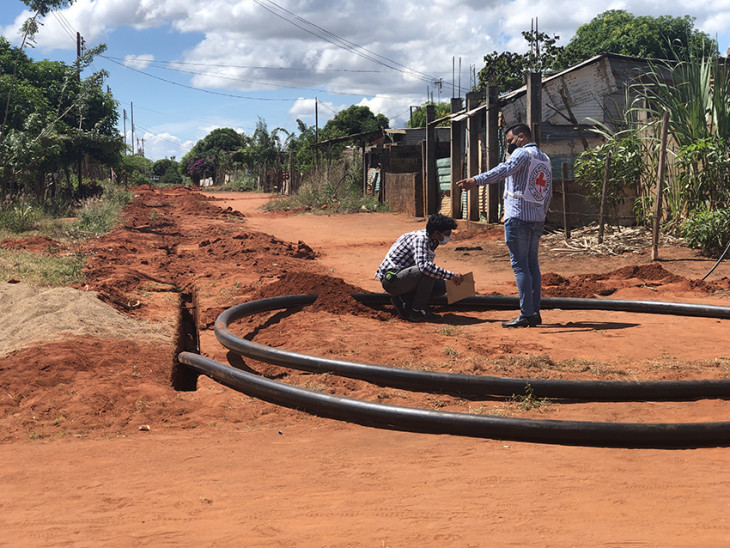
"Having easy access to water has helped us enormously. Before, we had pump water from a spillway, but sometimes it wouldn't be enough and so we'd have to buy water from tankers," says Marta Quiroz, a local resident who runs a community canteen providing meals for 257 people a day. "Now, every family has a tap at the entrance of their house and we all get this great stream of water."
Installing this water system has not only made daily life easier for the community, but has also improved local health-care provision. "The community health-care centre had no water for seven years," explains community leader Claudio Díaz. With ready access to water every day, the community health-care has now finally been able to resume its general medicine and dentistry services for the community.
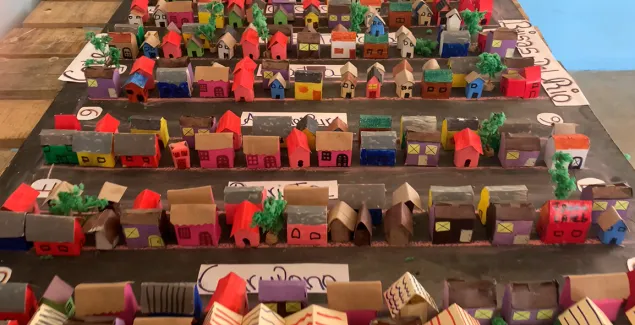
Before we started our project, community leaders made a scale model of the sector, mapping out the houses and ten streets that are home to around 2,400 people.
Another local resident, Damaris Hernández, has been bringing together community volunteers to cook meals at her house every Thursday and Friday for the past two years. The meals are then delivered to 160 of the most vulnerable residents, including children and disabled people. "Having access to water has been a tremendous help for us. Before, we would have to fetch water elsewhere and carry it all the way here just to make soup – it was exhausting," says Damaris, while she chops herbs and vegetables for today's soup. "But now we don't have to and that means we can help more people."
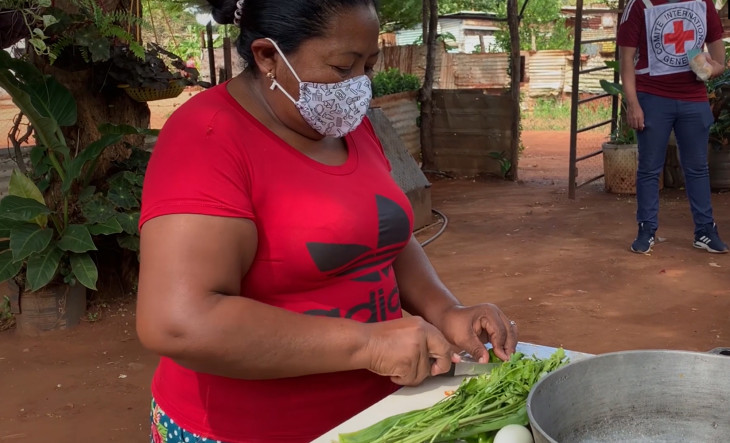
As for José Antonio, having access to water at home has enabled him both to meet his own basic needs and to improve the working of his bakery, which supports his family and supplies bread to the whole community. "Water is the basis of my work – having it readily accessible at home every day makes for cleaner equipment, improved overall hygiene and better bread," he explains. "Before, water would come at God's will or else we'd have to buy it."
Before, we had pump water from a spillway, but sometimes it wouldn't be enough and so we'd have to buy water from tankers. Now, every family has a tap at the entrance of their house and we all get this great stream of water
Access to water is essential for people's well-being and a necessary resource for every aspect of daily life, from food to health and work. Working hand in hand with the community meant we benefited from their guidance and support throughout this project, and this was key to our success in meeting their immediate needs.
The ICRC has also undertaken repairs and maintenance work on water-supply systems and other essential services in other communities affected by armed violence. In 2021:
• 1,500 people benefited from a monthly delivery of approximately 160,000 litres of water at the San Antonio bus terminal in Táchira State
• 610,000 litres of water were trucked to ten detention centres every month
• 47 health-care, forensic, prison and community facilities received support to improve their essential services in Capital District and the states of Miranda, Aragua, Lara, Táchira, Zulia, Apure, Bolívar and Monagas.

